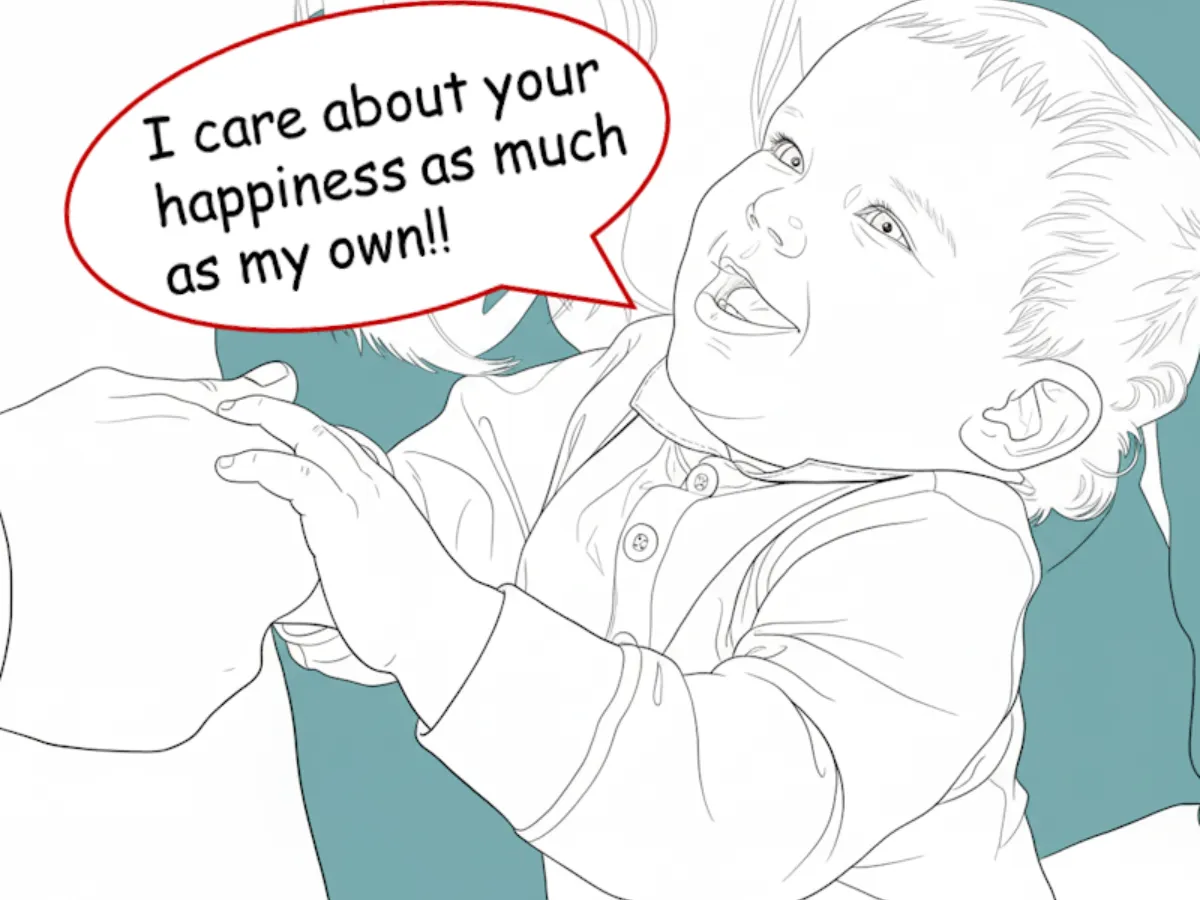 Generosity: I care about your happiness as much as my own
Generosity: I care about your happiness as much as my ownGENEROSITY_RELATIONSHIP
Generosity in Relationships: The Secret Ingredient of Lasting Love
How to Cultivate Emotional Generosity, Fix a Lack of Generosity, and Build Reciprocity
What Is Generosity in a Relationship?
Generosity in a relationship is more than giving gifts or doing favors. It’s the willingness to give time, attention, compassion, and understanding — even when it’s inconvenient. True emotional generosity comes from the heart, not obligation.
It’s saying “I care about your happiness as much as my own.”
Generosity is expressed through kindness, patience, forgiveness, and the small daily acts that make your partner feel valued and supported. It’s an emotional mindset — a way of loving that puts giving before keeping score.
Why Is Generosity Important in a Relationship?
Generosity builds trust, emotional safety, and connection. When both partners give freely — appreciation, affection, or understanding — it creates a healthy emotional flow where love circulates instead of stagnates.
Generous partners consistently practice:
Active Listening: Fully engaging instead of waiting to respond.
Empathy: Offering genuine understanding rather than criticism.
Selfless Giving: Giving without expecting something immediate in return.
Forgiveness: Choosing grace over holding onto grudges.
In emotionally mature relationships, generosity fuels gratitude and reciprocity, helping partners feel secure and cared for. It turns “me and you” into “us.”
The Damage Caused by a Lack of Generosity
A lack of generosity doesn’t always show as stinginess with money — it’s often stinginess with emotional energy. When one or both partners hoard attention, affection, or effort, the relationship begins to feel unbalanced and lonely.
Consequences often seen in a lack of generosity in marriage or partnership include:
Emotional deprivation – One partner feels unseen or undervalued.
Resentment and defensiveness – Giving stops when one feels it’s not mutual.
Loss of intimacy – Emotional distance replaces warmth and care.
Transactional love – “I’ll do this if you do that” becomes the norm.
Over time, the relationship becomes a ledger, not a partnership.
Generosity turns love into a gift; its absence turns love into a bargain.
7 Subtle Signs of a Lack of Emotional Generosity
Recognizing these subtle, everyday patterns of lack of generosity helps you address the issue before it causes lasting harm. These behaviors stem from a mindset of emotional scarcity:
Rarely initiating affection, appreciation, or thoughtful gestures
Avoiding compromise or expecting the partner to always adjust
Withholding compliments or emotional validation
Keeping score of who gives or does more ("the relationship ledger")
Acting entitled to your partner’s time or efforts
Refusing to help or support when it’s inconvenient
Seeing giving as a loss instead of a shared investment
Such behaviors stem from fear, ego, or emotional scarcity — the belief that giving diminishes rather than strengthens oneself.
How to Cultivate and Rebuild Generosity in Your Relationship
How to Cultivate Generosity in Yourself
Generosity begins as an inner practice. When you feel emotionally abundant, giving comes naturally.
Best practices for inner growth:
Shift Your Focus: Move from “What do I get?” to “What can I give?”—Small, consistent acts build connection.
Practice Gratitude Daily: Grateful people are naturally more generous with their time and emotions.
Give Without Keeping Score: Generosity loses meaning when it’s viewed as a trade or transaction.
Offer Your Full Attention: Deep, focused listening is one of the most generous emotional gifts you can give.
Forgive Quickly: Letting go of minor offenses is an act of generosity of the heart.
The more you give, the more trust and love grow — generosity multiplies itself.
How to Handle a Partner Who Lacks Generosity
If you need to fix a lack of generosity with your partner, approach it with empathy, not accusation.
Steps for constructive dialogue:
Communicate Your Needs Clearly: Use “I feel” statements to describe your needs instead of using blame.
Recognize Emotional Barriers: Sometimes fear of rejection or vulnerability blocks their ability to be generous.
Model the Behavior: Demonstrate consistent emotional generosity to encourage reciprocity, but avoid martyrdom.
Set Healthy Limits: Giving should come from a place of love, not one that breeds resentment in you.
Encourage Open Dialogue: Ask how both of you can feel more valued, supported, and less emotionally depleted.
If change doesn’t come despite effort and communication, it may reflect deeper issues like emotional immaturity or self-centeredness — challenges that may need professional guidance to resolve.
Final Thoughts
Generosity is the quiet force that keeps relationships alive and evolving. It’s not about material gifts but emotional richness — offering love, patience, and understanding freely.
When generosity thrives, both partners feel full; when it fades, both feel deprived.
So if you want more love, start by giving it — not because you have to, but because you want to.
What is one small, generous act you can perform for your partner today?
 thelovemaze.com
thelovemaze.com